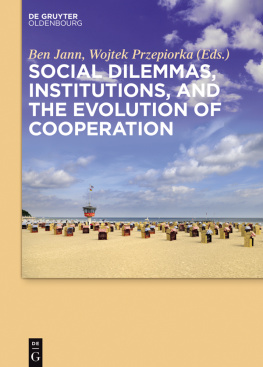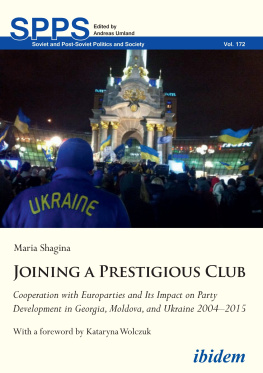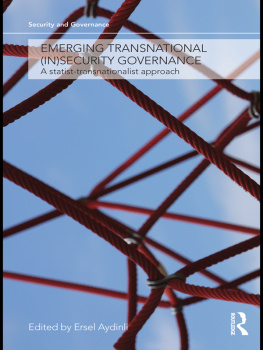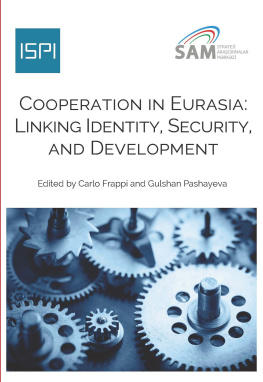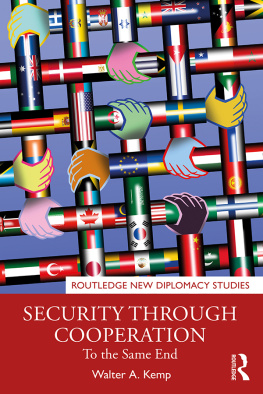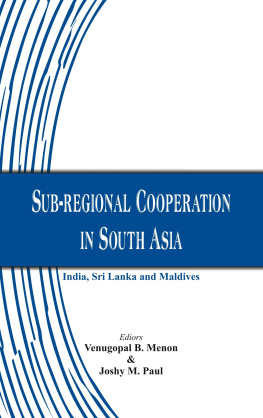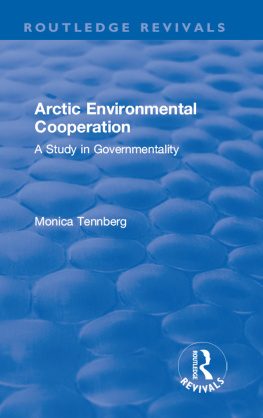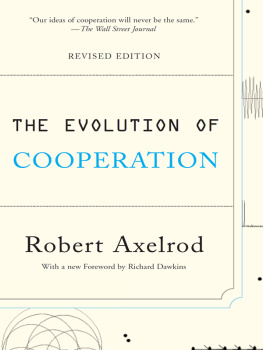POLICING COOPERATION ACROSS BORDERS
In a contemporary world in which crime and criminals freely and frequently traverse the borders of nation states the need for effective and sustained international cooperation between law enforcement agencies has never been greater. This excellent book provides a blueprint for such cooperation, based on a rigorous comparative appraisal of collaborative policing in Europe and the Antipodes.
Duncan Chappell, University of Sydney, Australia
This book is dedicated to the people who make cooperation across jurisdictions, cultures or organisations their mission.
Policing Cooperation Across Borders
Comparative Perspectives on Law Enforcement within the EU and Australia
SASKIA HUFNAGEL
ARC Centre of Excellence in Policing and Security
Griffith University, Australia.
First published 2013 by Ashgate Publishing
Published 2016 by Routledge
2 Park Square, Milton Park, Abingdon, Oxon OX14 4RN
711 Third Avenue, New York, NY 10017, USA
Routledge is an imprint of the Taylor & Francis Group, an informa business
Copyright Saskia Hufnagel 2013
Saskia Hufnagel has asserted her right under the Copyright, Designs and Patents Act, 1988, to be identified as the author of this work.
All rights reserved. No part of this book may be reprinted or reproduced or utilised in any form or by any electronic, mechanical, or other means, now known or hereafter invented, including photocopying and recording, or in any information storage or retrieval system, without permission in writing from the publishers.
Notice:
Product or corporate names may be trademarks or registered trademarks, and are used only for identification and explanation without intent to infringe.
British Library Cataloguing in Publication Data
Hufnagel, Saskia.
Policing cooperation across borders : comparative perspectives on law enforcement within the EU and Australia.
1. Law enforcement--European Union countries. 2. Law enforcement--Europe--International cooperation--History. 3. Law enforcementAustralia. 4. Law enforcement-Australia-History. 5. Australian Federal Police-History. 6. Interstate relationsAustralia.
I. Title
344.240523-dc23
Library of Congress Cataloging-in-Publication Data
Hufnagel, Saskia.
Policing cooperation across borders : comparative perspectives on law enforcement within the EU and Australia / by Saskia Hufnagel.
p. cm.
Includes bibliographical references and index.
ISBN 978-1-4094-5341-3 (hardback) -- ISBN 978-1-3156-0106-9 (ebook) 1. Police--European Union countries--International cooperation--History. 2. Police--Australia--International cooperation--History. 3. Law enforcementInternational cooperation. I. Title.
K3465.H84 2013
363.23094dc23
2012024264
ISBN 9781409453413 (hbk)
ISBN: 978-1-3156-0106-9 (ebk-PDF)
ISBN 9781317079149 (ebk-ePUB)
List of Figures
Foreword
Prof. em. dr. Cyrille Fijnaut
Erasmus University Rotterdam, K.U. Leuven and Tilburg University
Today it is nearly self-evident to state that globalisation in many ways has got a grip on the world we live in. Everyone can see this, day in day out, on the television screens and read about it in the newspapers. Persons and goods are being moved around the globe in a few days time. Huge amounts of money are being transferred in split seconds from one continent to the other. Global telephone calls are made these days as if it has never been otherwise. In other words, it is no wonder that in the last decades we have also experienced an enormous acceleration in the globalisation of policing. Because of the globalisation of transportation, communication and banking, major forms of serious crime and terrorism, problems of immigration and regulation as well as all sorts of traffic flows became more and more global phenomena.
A few years ago Peter Andreas and Ethan Nadelmann wrote a great book, Policing the Globe (New York, Oxford University Press, 2006). Its title should not be misunderstood. Up to this moment and one may easily add: in the foreseeable future there is no global force that polices the world we live in. What we really have seen in the last century since notably the 1960s is the enhancement of policing networks by nation-states in order to protect their individual and common political, economic and cultural interests. Interpol is definitely the most developed institutionalised global network of national police forces. But no less important are the more informal, rather diplomatic networks of liaison officers which many states have established via their embassies all over the world. Liaison officers are today used to enhance cross-border law enforcement not only by the United States, China, Russia, the United Kingdom, Germany and Canada, but also by small countries like the Netherlands and Belgium. And one should also not lose sight of the very informal but equally important networks of special units and experts in many fields of policing: armed intervention in cases of extreme violence, investigation into child pornography networks, the fight against cybercrime and many others.
Against this background it is rather amazing that academic research on the globalisation of policing has been that limited until now. Apart from the very original book of Nadelmann (Cops Across Borders, published by the Pennsylvania State University Press in 1993), his above-mentioned book with Andreas, some other pieces of qualified in-depth research, like for example Didier Bigos 1996 publication Polices en Reseaux (Paris, Presses de Sciences Po) and a number of edited books, such as the recent collection of essays edited by notably Saskia Hufnagel, Clive Hartfield and Simon Bronitt (Cross-border Law Enforcement, Routledge, 2012), there have not been many publications on these important developments. In other words, most police research still relates to local, national or (sub-)continental issues. A lot of good reasons exist for this state of affairs: the national funding of research, the problems of language and distance, the lack of entrepreneurial spirit in academic circles, the limited accessibility of police forces in many countries and the confidentiality of cross-border police operations. And it goes without saying that research on, for example, problems of neighbourhood or public order policing in big cities is equally of great importance. However, this state of affairs gives police research a slightly outdated image as if it falls behind the evolution of its object itself.
One can therefore only applaud the initiative Saskia Hufnagel took a few years ago when she started a research project that not only covers the historical development of police cooperation in Australia and the European Union, but also aims at a comparative analysis that is of academic relevance as well as of practical use. This was a particularly courageous initiative because a well-structured comparative analysis of cross-border policing in a federal system and in a quasi-federal system on opposite sides of the globe is by nature a complicated intellectual and social task. It can furthermore be labelled a challenging initiative for at least two other reasons. The first is that while in the last 25 years a lot has been published about cross-border policing in the European Union, the literature on this issue in Australia is nearly non-existent. That is to say, she really had to start the research on police cooperation in Australia from scratch. The second reason is that as a result of the set-up of the project as well as its ends, she had to do her utmost to apply a multi-disciplinary, predominantly socio-legal approach to the present study. This involved not only the collection of relevant official documents and academic literature that might directly or indirectly be of interest, but also the conducting of a substantial number of interviews and informal conversations with key persons in the field policymakers, practitioners and academics in both systems.


